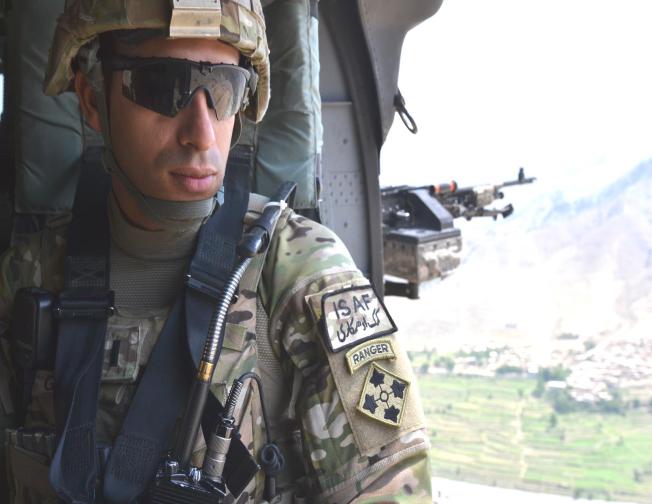“I realized sitting in my own hospital bed, having been injured by a suicide bomber, that no Taliban, no al-Qaeda, and no foreign fighter ever truly scared me.
What frightened me were the demons in my head left behind after that traumatic attack, and their relentless work to destroy my inner spirits and finish me off.”
_____________________________________________________________________
“The longest war in American history turns 16 years old — the anniversary of the first deployment of elite special operators to Afghanistan just weeks after the worst terrorist attack in our nation’s history.
Back then our mission was clear, and the call to war was simple: We were going to take out Osama bin Laden, and shut down al-Qaeda’s safe haven for good.
For most American teenagers, a 16th birthday is a huge milestone, a joyful transition into the independence, freedom and opportunities that come with adulthood. But in war, these milestones operate in reverse. The longer they stretch on, the murkier our mission feels, the greater the sacrifice becomes, and the farther into the distance our original goals fade.
Most Americans, glad to be hitting back after being attacked on 9/11, never imagined how expansive this war would become, how many millions would ultimately deploy to fight it, that bin Laden would prove such an elusive target, or that this conflict would morph from a massive manhunt to an even greater struggle for Afghanistan’s nationhood and soul.
And no one would have believed 2,500 American lives — and even more Afghan allies — would be lost.
Americans look at these questions differently and from many perspectives — across our dining room tables and our political divides. Some think we have been there too long, some that victory is just around the corner. Some think we have a responsibility to put Afghanistan back together, others that we are doing more harm than good.
I’ve been a part of these conversations, and I’ve been one of the many confused about our mission. Until I deployed myself.
On the ground in Afghanistan, walking through the silvery moon dust that layers the mountain ridgelines and among ancient societies who carve their homes out of some of the world’s most unforgiving terrain, this war looks very different.
Instead of hostile barbarians, I found myself among hungry and hopeful people. Instead of hunting a terrorist, we hunted for a nation’s future.
Yes, we fought the Taliban, and we used overwhelming American strength to fight those who engaged us with hostility. But we spent much more time working to improve the living conditions for ordinary Afghans, to clear paths for children to safely go to school, to deliver electricity, clean water and basic human security.
I saw the best of humanity at work in Afghanistan through the sacrifices and bravery of the people we worked alongside.
I also saw the depths of evil. Acts of barbaric cruelty, Afghan against Afghan, and brother against brother. The Taliban are a merciless enemy, happy to kill scores of their own people if it was worth one American life.
What hits hardest from my time in Afghanistan is how many of us came home with wounds — physical and emotional.
I nearly became a statistic, one of the 20 veterans who takes his or her life every single day. But like my time in combat, I relied on my brothers and sisters around me. They never quit on me, they pushed me and guided me. They saved my life once in the mountains of Afghanistan and again in the hospital room of Walter Reed National Military Medical Center.
Today, I work with the Boeing Co. to help veterans and their families land careers where they can use their rare and unique skills. Part of that process involves providing our veterans with the resources they need when they, too, are struggling, physically or emotionally. To me, the continuing legacy of this war resides in every job offered to a veteran, in every family reunited with their service member, and in every opportunity for peace that we create.”
ABOUT THE AUTHOR:
Florent Groberg is a retired Army captain, Medal of Honor recipient and author of “8 Seconds of Courage: A Soldier’s Story from Immigrant to the Medal of Honor,” to be released Nov. 7. He works at Boeing Co. as director of veterans outreach and defense, space and security strategy. On Twitter: @FlorentGroberg
Washington Post Medal of Honor Veteran



